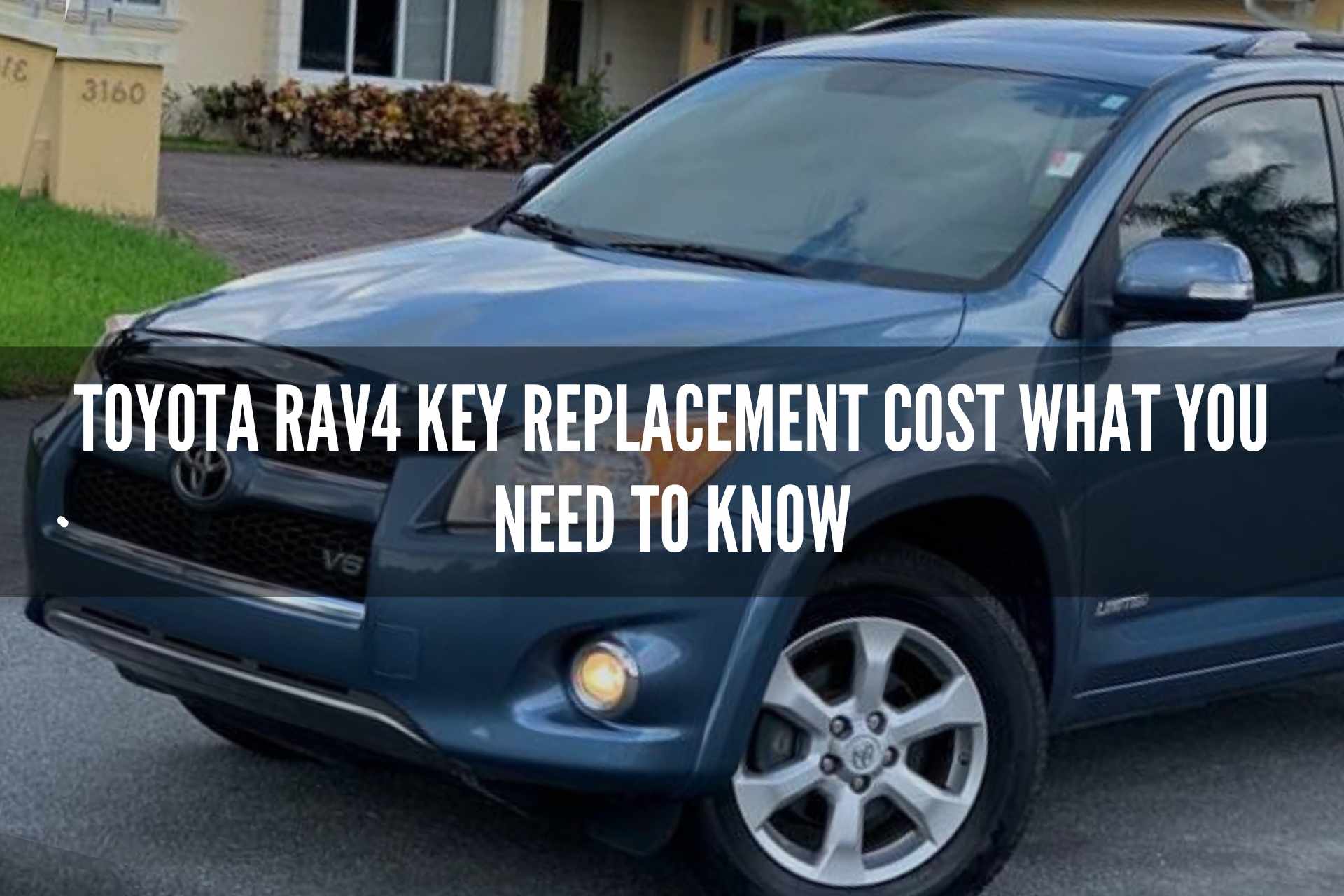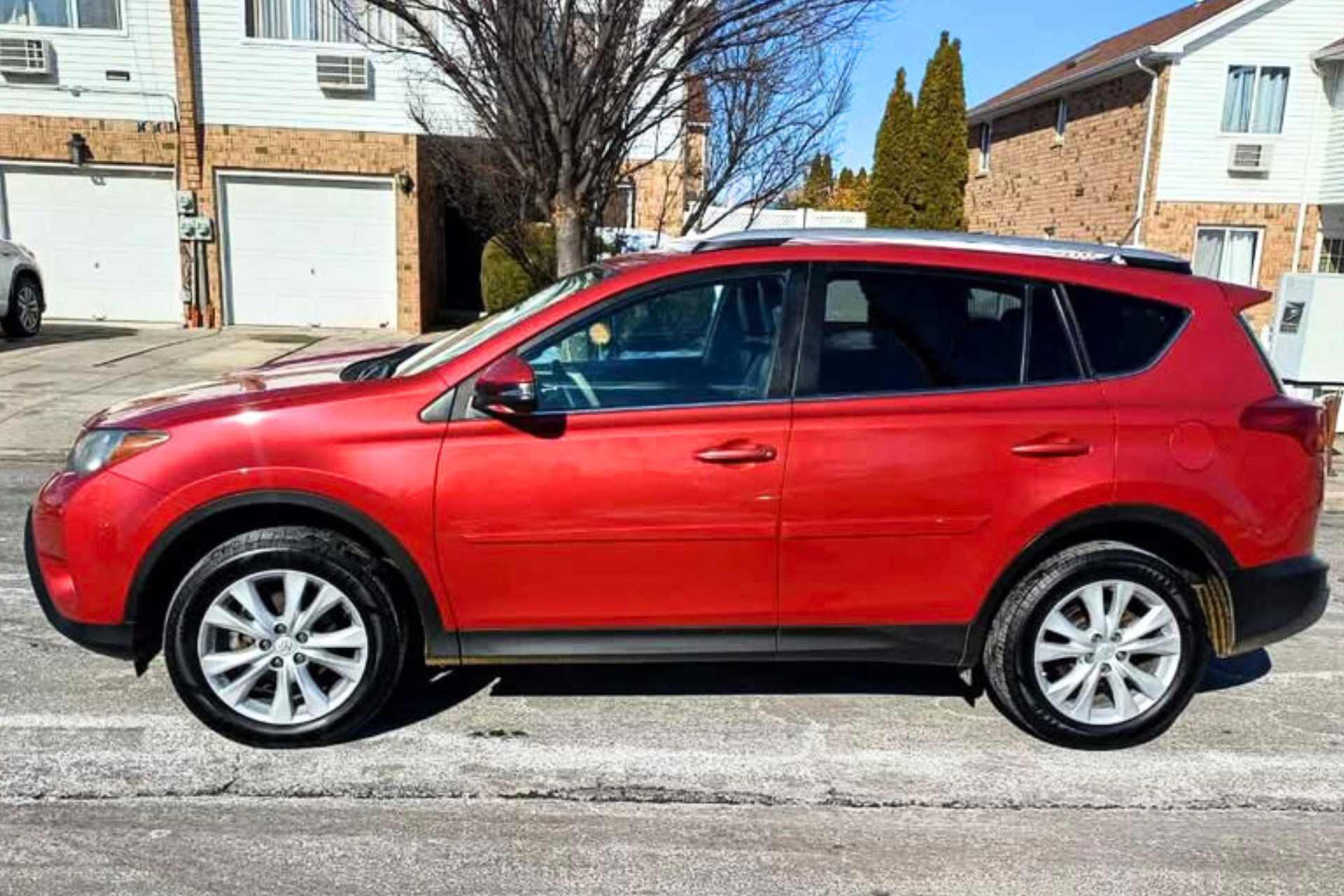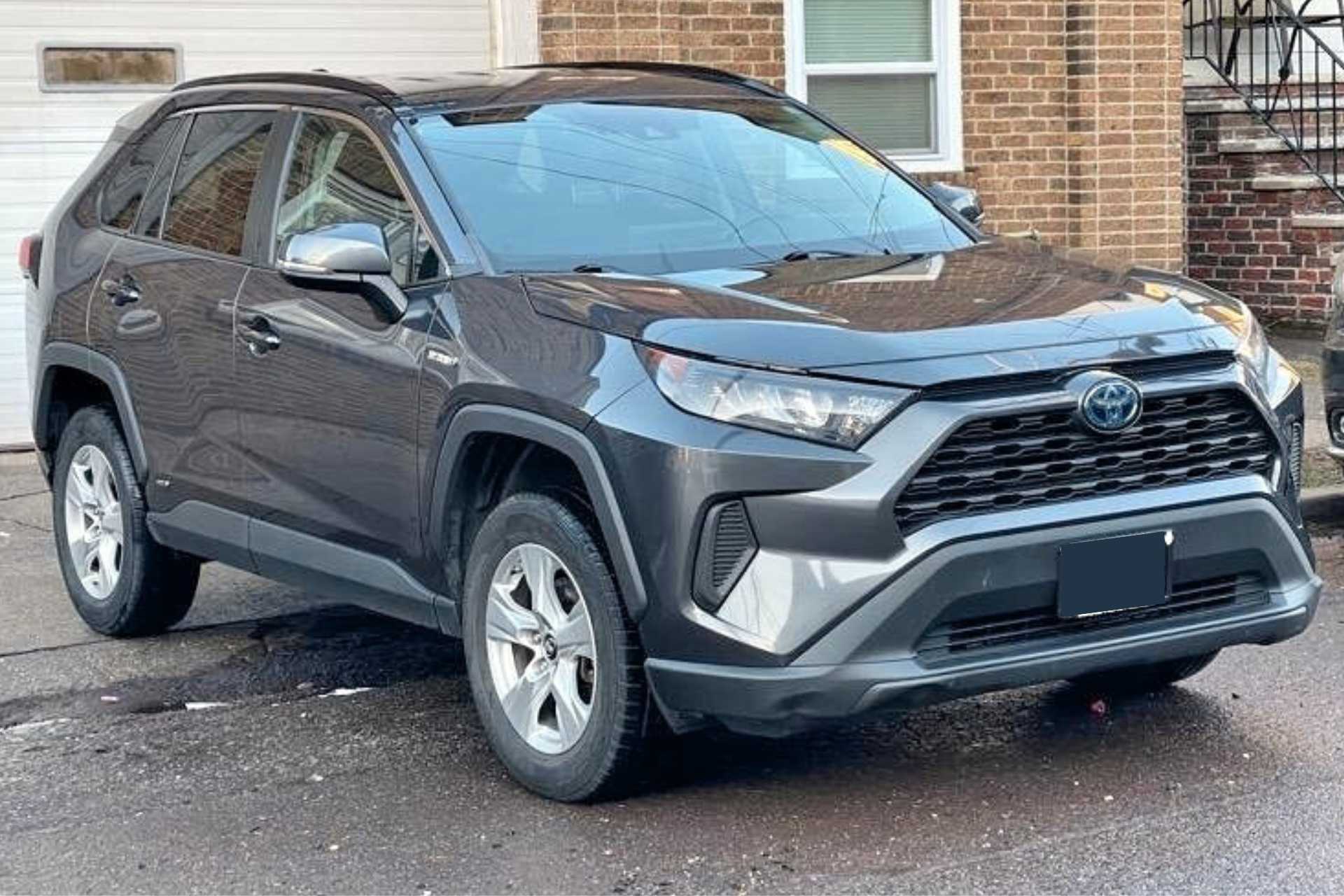Maintenance
Toyota Rav4 Key Replacement Cost What You Need to Know

A Toyota Rav4 key replacement can be costly, but it’s essential to know what factors influence the cost. In this article, we will discuss everything you need to know about Toyota Rav4 key replacement cost, including the key types, programming options, and where to get a replacement key.
What are the different types of Toyota Rav4 keys?
There are two main types of Toyota Rav4 keys: traditional keys and key fobs. Traditional keys are the standard keys that require manual insertion and turning in the ignition. Key fobs, on the other hand, are remote-controlled devices that allow you to lock, unlock, and start your vehicle with the push of a button.
Key fobs are more advanced and convenient but also tend to be more expensive to replace. When getting a replacement key, it’s essential to know which type of key you have to determine the cost.
How much does it cost to replace a Toyota Rav4 key?
The cost of replacing a Toyota Rav4 key can vary depending on several factors, such as the type of key, the programming method, and the location where you get the replacement key. On average, the cost can range from $200 to $600 or more.
Traditional keys are generally cheaper to replace, costing around $200 to $300, while key fobs can cost between $300 and $600. The cost also includes the key cutting and programming fees, which can add to the total cost.
Where can I get a Toyota Rav4 key replacement?
There are several options for getting a Toyota Rav4 key replacement. You can go to a Toyota dealership, a locksmith, or a third-party key replacement service. Dealerships tend to be more expensive, but they can provide genuine replacement keys and professional programming services.
Locksmiths and third-party key replacement services may offer more affordable options, but you should ensure they have the necessary equipment and expertise to program the key correctly. It’s essential to choose a reputable service to avoid any issues with the replacement key.
Can I program a Toyota Rav4 key myself?
Programming a Toyota Rav4 key yourself can be challenging and may require special equipment and technical knowledge. While some DIY programming methods exist, they may not work for all key types or vehicle models. It’s recommended to consult a professional locksmith or dealership for key programming to ensure it’s done correctly.
Attempting to program the key yourself without proper knowledge or tools can lead to errors and potentially damage your vehicle’s security system. It’s better to invest in professional programming services to avoid any risks.
What should I do if I lose my Toyota Rav4 key?
If you lose your Toyota Rav4 key, it’s essential to act quickly to prevent unauthorized access to your vehicle. Contact a Toyota dealership or locksmith as soon as possible to get a replacement key and deactivate the lost key to ensure your vehicle’s security.
Keep in mind that replacing a lost key may be more expensive than getting a duplicate key, as it may require additional security measures and programming. Be prepared to provide proof of ownership and identification when requesting a replacement key.
Conclusion:
Replacing a Toyota Rav4 key can be a costly but necessary expense. Understanding the factors that influence the cost, such as key types, programming methods, and service providers, can help you make an informed decision when getting a replacement key. Remember to choose a reputable service to ensure quality and reliability.
FAQs
1. Can I use a generic key fob for my Toyota Rav4?
No, it’s recommended to use a genuine key fob for your Toyota Rav4 to ensure compatibility and functionality.
2. How long does it take to get a Toyota Rav4 key replacement?
The time it takes to get a replacement key can vary depending on the service provider and availability of key programming equipment.
3. Can a locksmith program a Toyota Rav4 key?
Yes, many locksmiths have the necessary equipment and expertise to program Toyota Rav4 keys.
4. Will my replacement key work if I still have the original key?
Yes, a replacement key can work alongside your original key without any issues, as long as it’s programmed correctly.
5. Are there any warranties for Toyota Rav4 key replacements?
Some service providers may offer warranties for replacement keys, so it’s essential to inquire about warranty options when getting a new key.
Maintenance
Exploring the Optimal Tire Size for 2016 Toyota RAV4

In this article, we will explore the optimal tire size for your 2016 Toyota RAV4. We will discuss how the right tire size can impact your vehicle’s performance, fuel efficiency, and overall driving experience. By the end of this article, you will have a better understanding of how to choose the best tires for your RAV4.
What factors should I consider when choosing a tire size for 2016 toyota RAV4 ?
When selecting the ideal tire size for your RAV4, there are several important factors to keep in mind. One of the most crucial considerations is the manufacturer’s recommended tire size for your specific vehicle model. This information can typically be found in your RAV4’s owner’s manual or on a sticker located on the driver’s side door jamb. It is essential to adhere to these recommendations to ensure optimal performance, safety, and compatibility with your vehicle.

Additionally, you should consider the type of driving you do most frequently. If you primarily drive on highways or smooth roads, a different tire size may be suitable compared to if you frequently navigate rough terrain or off-road conditions. The climate and weather conditions in your area should also play a role in your tire size selection, as certain sizes may provide better traction and handling in different environments.
How does tire size impact my 2016 Toyota RAV4’s performance?
The tire size you choose can have a significant impact on your RAV4’s performance in various ways. The diameter and width of the tire can affect the vehicle’s handling, braking, and acceleration capabilities. A larger tire size may provide improved traction and stability, particularly when driving in adverse conditions or off-road terrain. However, larger tires can also result in decreased fuel efficiency and a rougher ride.
Conversely, smaller tires may offer better fuel economy and a smoother ride, but they may sacrifice some traction and handling capabilities. It is essential to strike a balance between performance, efficiency, and comfort when selecting the optimal tire size for your RAV4.
What are the potential drawbacks of choosing the wrong tire size for my 2016 Toyota RAV4?
Selecting the wrong tire size for your RAV4 can lead to a variety of potential drawbacks. Inconsistent tire sizes can impact your vehicle’s handling and stability, potentially leading to unsafe driving conditions. Inadequate traction and grip can result in reduced braking performance and increased risk of accidents, particularly in hazardous weather conditions.

Moreover, choosing a tire size that is incompatible with your RAV4’s specifications may void your vehicle’s warranty and compromise its overall performance and longevity. It is crucial to consult with a professional mechanic or tire specialist to ensure you select the appropriate tire size for your specific vehicle model.
How can I determine the optimal tire size for my 2016 Toyota RAV4?
To determine the optimal tire size for your RAV4, it is recommended to consult with a certified mechanic or tire professional. They can assess your driving habits, vehicle specifications, and environmental factors to recommend the most suitable tire size for your needs. Additionally, you can refer to your RAV4’s owner’s manual or contact the manufacturer for specific recommendations.
It is crucial to consider factors such as diameter, width, and aspect ratio when selecting a tire size, as these elements can affect your vehicle’s performance and safety. By investing in the right tire size for your RAV4, you can improve your driving experience and ensure optimal performance and longevity for your vehicle.
Conclusion
In conclusion, choosing the optimal tire size for your 2016 Toyota RAV4 is essential for maintaining performance, safety, and overall driving experience. By considering factors such as manufacturer recommendations, driving habits, climate conditions, and professional advice, you can select the best tire size for your specific needs. Investing in the right tires can enhance your RAV4’s handling, traction, and efficiency, ultimately improving your driving experience.
https://www.youtube.com/watch?v=20Q-jEYoTqY&pp=ygUrT3B0aW1hbCBUaXJlIFNpemUgZm9yIFlvdXIgMjAxNiBUb3lvdGEgUkFWNA%3D%3D
FAQs
1. Can I install larger tires on my 2016 Toyota RAV4 without causing any issues?
It is not advisable to install significantly larger tires on your RAV4, as this can impact your vehicle’s performance, handling, and safety. It is recommended to adhere to the manufacturer’s recommended tire size to ensure compatibility and optimal performance.
2. Will changing my tire size affect my RAV4’s fuel efficiency?
Yes, changing your tire size can impact your RAV4’s fuel efficiency. Larger tires may result in decreased fuel economy due to increased rolling resistance, while smaller tires may offer improved efficiency but sacrifice some handling capability. It is essential to consider the trade-offs between performance and efficiency when selecting a tire size.
3. How often should I replace my tires on my 2016 Toyota RAV4?
The frequency of tire replacement depends on various factors, including driving habits, road conditions, and tire maintenance. It is recommended to inspect your tires regularly for signs of wear and tear and replace them when they reach the end of their lifespan. Consult with a professional mechanic for guidance on tire replacement intervals.
4. Can I mix different tire sizes on my RAV4?
It is not advisable to mix different tire sizes on your RAV4, as this can lead to uneven wear, handling issues, and potentially unsafe driving conditions. It is recommended to install a complete set of tires with the same specifications to ensure optimal performance and safety.
5. How can I tell if my tire size is compatible with my 2016 Toyota RAV4?
To determine if a tire size is compatible with your RAV4, it is essential to consider factors such as diameter, width, and load capacity. Consult with a professional mechanic or refer to your vehicle’s owner’s manual for specific recommendations on compatible tire sizes for your RAV4.
Maintenance
Owners Report Common 2017 Toyota RAV4 Hybrid Problems

In this article, we will discuss the common problems that owners of the 2017 Toyota RAV4 Hybrid have reported. If you own this vehicle or are considering purchasing one, it’s important to be aware of these potential issues so you can make an informed decision.
What are the most common problems reported by owners of the 2017 Toyota RAV4 Hybrid?
One common issue that owners have reported with the 2017 Toyota RAV4 Hybrid is problems with the hybrid powertrain. Some owners have experienced issues with the hybrid system not functioning properly, leading to decreased fuel efficiency and overall performance. Another common problem is with the transmission, with some owners reporting issues with shifting and rough gear changes.
Owners have also reported problems with the electrical system in the 2017 Toyota RAV4 Hybrid. Some have experienced issues with the infotainment system, including freezing screens and connectivity problems. Additionally, there have been reports of issues with the power windows and locks not working properly.

How can these problems be addressed?
If you are experiencing issues with the hybrid powertrain in your 2017 Toyota RAV4 Hybrid, it’s important to have it looked at by a certified Toyota technician. They will be able to diagnose the problem and recommend the necessary repairs. For transmission issues, it may be necessary to have the transmission serviced or replaced.
For electrical system problems, you may need to have the infotainment system updated or replaced. If you are having issues with the power windows and locks, it could be due to a faulty switch or wiring problem. A technician will be able to identify the issue and make the necessary repairs.
Are these problems covered under warranty?
Many of the issues reported by owners of the 2017 Toyota RAV4 Hybrid may be covered under the vehicle’s warranty. It’s important to check with your local Toyota dealership to see if the repairs are covered. If not, you may need to pay out of pocket for the necessary repairs.

It’s always a good idea to keep up with regular maintenance on your vehicle to prevent potential problems from arising. This includes regular oil changes, tire rotations, and fluid checks to keep your 2017 Toyota RAV4 Hybrid running smoothly.
Conclusion
Overall, the 2017 Toyota RAV4 Hybrid is a reliable and efficient vehicle, but like any car, it may experience some common problems. By being aware of these issues and addressing them promptly, you can keep your RAV4 Hybrid running smoothly for years to come.
FAQs
1. Are there any recalls on the 2017 Toyota RAV4 Hybrid?
Recalls on vehicles can happen for a variety of reasons, such as safety concerns or manufacturing defects. It’s always a good idea to check with the manufacturer or your local dealership to see if there are any recalls on your specific vehicle.
2. How can I improve the fuel efficiency of my 2017 Toyota RAV4 Hybrid?
The 2017 Toyota RAV4 Hybrid is a popular choice for families due to its spacious interior, safety features, and fuel efficiency. It provides a comfortable ride for passengers and ample cargo space for all your family’s needs.
3. Is the 2017 Toyota RAV4 Hybrid a good choice for a family vehicle?
The 2017 Toyota RAV4 Hybrid is a popular choice for families due to its spacious interior, safety features, and fuel efficiency. It provides a comfortable ride for passengers and ample cargo space for all your family’s needs.
4. How long do hybrid batteries last in the 2017 Toyota RAV4?
The hybrid battery in the 2017 Toyota RAV4 is designed to last for many years, but its lifespan can vary depending on driving habits, maintenance, and environmental factors. On average, a hybrid battery can last anywhere from 8 to 10 years.
5. What should I do if my 2017 Toyota RAV4 Hybrid is experiencing engine stalling?
If your vehicle is experiencing engine stalling, it’s important to have it looked at by a certified technician as soon as possible. Engine stalling can be caused by a variety of issues, including fuel system problems, electrical issues, or ignition problems that need to be addressed promptly.
Maintenance
Expert Guide: Choosing the Right Transmission Fluid for Your 2011 Acura MDX

This article will discuss the importance of choosing the right transmission fluid for your 2011 Acura MDX. We will provide an expert guide to help you make the best decision for your vehicle. We will explain the different types of transmission fluids available, how to check your current fluid levels, and how to properly maintain your transmission for optimal performance.
What type of transmission fluid does my 2011 Acura MDX need?
Your 2011 Acura MDX requires ATF (Automatic Transmission Fluid) Type 3. This specific type of fluid is designed to work with the transmission system in your vehicle. It is essential to use the correct fluid to ensure smooth shifting and optimal performance. Using the wrong type of transmission fluid can lead to damage to your transmission system.

It is important to check your owner’s manual for the exact specifications of the transmission fluid required for your specific model year. Additionally, you can consult with a dealership or mechanic to confirm the correct type of fluid for your Acura MDX.
How do I check my transmission fluid levels?
Checking your transmission fluid levels is a simple process that can be done at home. Start by locating the transmission dipstick under the hood of your Acura MDX. It is typically labeled with a bright yellow or red handle. Pull out the dipstick and wipe it clean with a cloth or paper towel.
Reinsert the dipstick fully into the transmission fluid filler tube and pull it out again. Check the fluid level against the markings on the dipstick. If the fluid level is below the minimum mark, you will need to add more fluid to reach the optimal level. Be sure to use the correct type of fluid specified for your vehicle.
How often should I change my transmission fluid?
It is recommended to have your transmission fluid changed every 30,000 to 60,000 miles, depending on your driving habits and the condition of the fluid. Regular maintenance of your transmission fluid is essential to prevent damage and ensure smooth operation of your vehicle.

If you notice any signs of transmission fluid leaks, burning smells, or difficulty shifting gears, it may be time to have your transmission fluid checked and changed. Consult with a mechanic or dealership for further guidance on when to change your transmission fluid.
Can I use a generic transmission fluid in my Acura MDX?
It is not recommended to use a generic or universal transmission fluid in your Acura MDX. Using the correct type of transmission fluid specified by the manufacturer is crucial to the proper functioning of your vehicle’s transmission system. Generic fluids may not meet the specific requirements of your Acura MDX and could potentially cause damage.
To ensure the longevity and performance of your vehicle, always use the recommended ATF Type 3 transmission fluid for your 2011 Acura MDX. Consult with a dealership or mechanic if you have any questions about the type of fluid to use.
Conclusion
Choosing the right transmission fluid for your 2011 Acura MDX is essential for maintaining optimal performance and longevity of your vehicle. By using the recommended ATF Type 3 fluid and following regular maintenance schedules, you can ensure smooth shifting and prevent damage to your transmission system. Be sure to check your fluid levels regularly, and consult with a professional if you have any concerns about your transmission fluid.
FAQs
1. Can I mix different types of transmission fluid?
Mixing different types of transmission fluid can cause damage to your vehicle’s transmission system. It is essential to use the correct type of fluid specified by the manufacturer for optimal performance and longevity.
2. What are the signs of low transmission fluid?
Signs of low transmission fluid include difficulty shifting gears, hesitation or slipping when accelerating, burning smells, and leaks under the vehicle. If you notice any of these symptoms, it is essential to check your fluid levels and top up if necessary.
3. How long does transmission fluid last?
Transmission fluid typically lasts between 30,000 to 60,000 miles, depending on driving habits and conditions. It is crucial to follow the recommended maintenance schedule for your vehicle to ensure optimal performance.
4. Can I check my transmission fluid without a dipstick?
Some newer vehicle models are designed without a transmission dipstick. In this case, it is recommended to consult with a professional mechanic or dealership for assistance in checking and changing your transmission fluid.
5. What happens if I neglect to change my transmission fluid?
Neglecting to change your transmission fluid can lead to damage and wear on your transmission system. This can result in costly repairs and potential breakdowns. It is essential to follow the recommended maintenance schedule for your vehicle to prevent damage and ensure smooth operation.
-

 Maintenance1 year ago
Maintenance1 year agoCommon Acura MDX Transmission Problems and How to Fix Them
-

 Vehicle Technology1 year ago
Vehicle Technology1 year agoTroubleshooting the SH-AWD Light on Your Acura MDX: Common Causes and Solutions
-

 Vehicle Technology1 year ago
Vehicle Technology1 year agoTroubleshooting Your Acura MDX Car Alarm Why It Keeps Going Off
-

 Maintenance1 year ago
Maintenance1 year agoUnderstanding the Acura MDX VTM-4 Light : What Does It Mean and How to Fix It
-

 Maintenance12 months ago
Maintenance12 months agoThe Ultimate Guide to Toyota Rav4 Windshield Replacement Costs
-

 Maintenance1 year ago
Maintenance1 year ago2019 Acura MDX Owners Report Troubling Transmission Issues
-

 Vehicle Technology1 year ago
Vehicle Technology1 year agoToyota’s Lunar Rock Color Option for Rav4: Out of this World
-

 Maintenance6 months ago
Maintenance6 months agoKeeping Your Drive Safe: Acura MDX Check Ads System Explained























